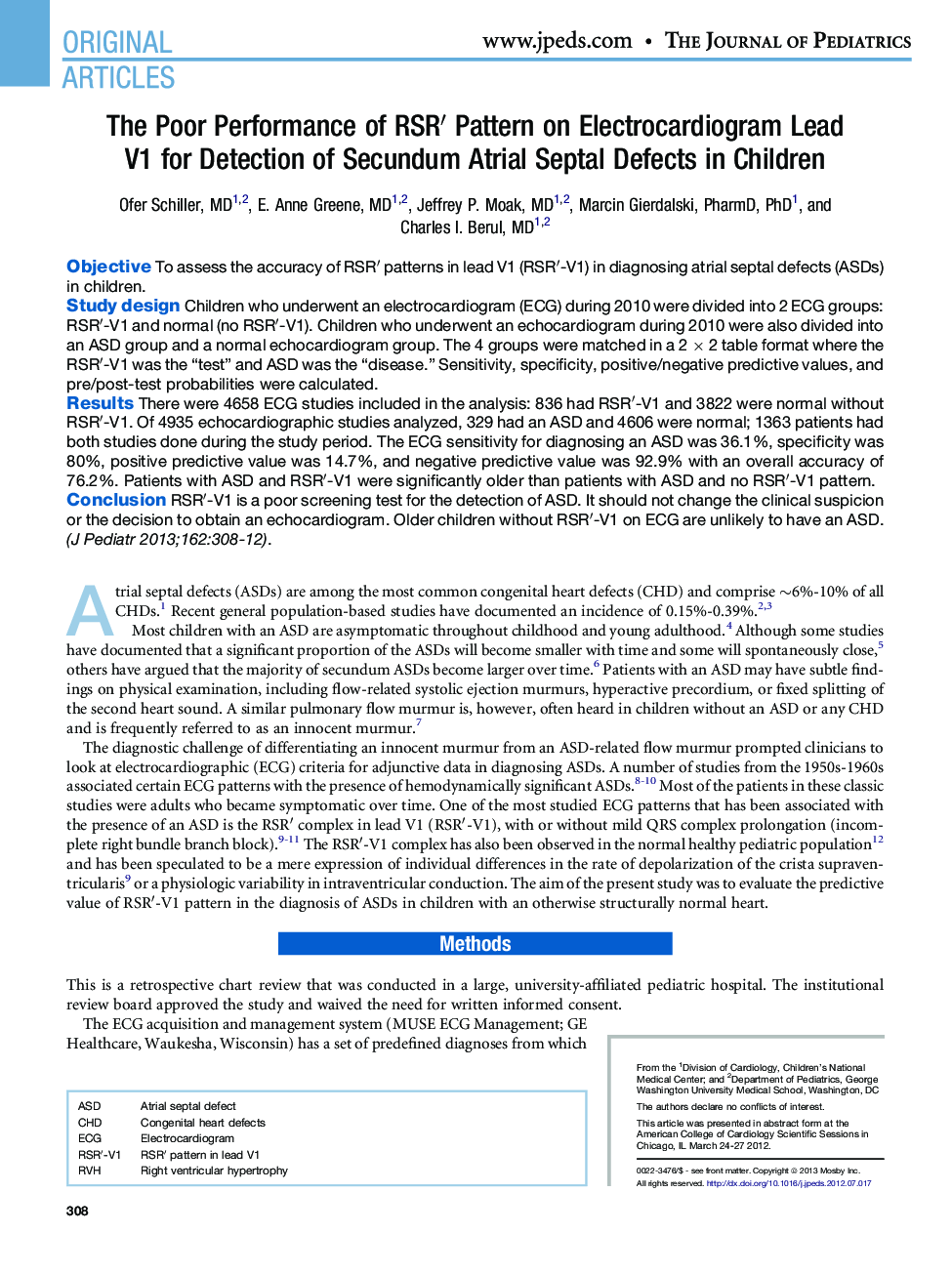| Article ID | Journal | Published Year | Pages | File Type |
|---|---|---|---|---|
| 6223869 | The Journal of Pediatrics | 2013 | 5 Pages |
ObjectiveTo assess the accuracy of RSRâ² patterns in lead V1 (RSRâ²-V1) in diagnosing atrial septal defects (ASDs) in children.Study designChildren who underwent an electrocardiogram (ECG) during 2010 were divided into 2 ECG groups: RSRâ²-V1 and normal (no RSRâ²-V1). Children who underwent an echocardiogram during 2010 were also divided into an ASD group and a normal echocardiogram group. The 4 groups were matched in a 2Â ÃÂ 2 table format where the RSRâ²-V1 was the “test” and ASD was the “disease.” Sensitivity, specificity, positive/negative predictive values, and pre/post-test probabilities were calculated.ResultsThere were 4658 ECG studies included in the analysis: 836 had RSRâ²-V1 and 3822 were normal without RSRâ²-V1. Of 4935 echocardiographic studies analyzed, 329 had an ASD and 4606 were normal; 1363 patients had both studies done during the study period. The ECG sensitivity for diagnosing an ASD was 36.1%, specificity was 80%, positive predictive value was 14.7%, and negative predictive value was 92.9% with an overall accuracy of 76.2%. Patients with ASD and RSRâ²-V1 were significantly older than patients with ASD and no RSRâ²-V1 pattern.ConclusionRSRâ²-V1 is a poor screening test for the detection of ASD. It should not change the clinical suspicion or the decision to obtain an echocardiogram. Older children without RSRâ²-V1 on ECG are unlikely to have an ASD.
